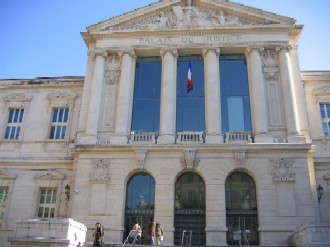 “I would like the hearings with the examining magistrate to be (…) recorded. I make this a condition of my support for Pascal Clément’s project,” declared Interior Minister Nicolas Sarkozy on Wednesday.
“I would like the hearings with the examining magistrate to be (…) recorded. I make this a condition of my support for Pascal Clément’s project,” declared Interior Minister Nicolas Sarkozy on Wednesday.
The audiovisual recording represents the first step towards the new reform of Justice, following the submission of the report by the Parliamentary Commission that investigated the Outreau affair debacle. “From the start, Nicolas Sarkozy has been particularly resolute on the accountability of magistrates, even demanding that they be accountable for their decisions, if necessary from their own pocket,” confirmed in partnership with the Minister of Justice, Pascal Clément, intending to go very far in reforming the judicial system. Although Dominique de Villepin has not decided, cameras might arrive as soon as 2007 in police stations and in 2008 at the magistrates’. Even if it provokes a violent outcry in the judicial sphere.
Several European countries have already adopted audiovisual recording.
In France, the judiciary is completely opposed to this measure. “Absurd!” exclaims Maître Jean-Pierre Versini-Campinchi, a leading figure of the Paris bar. “There are not even 10% of lawyers who are in favor of it.” “As long as a clerk or a judge attend the hearing, I don’t really see the purpose of such a measure,” declares Christophe Regnard, former examining magistrate and member of the magistrates’ trade union.
However, the Outreau parliamentary commission revealed that Judge Burgaud’s clerk was under his thumb, omitting or distorting some statements of the accused. Nonetheless, Richard Pallain, examining magistrate of Nanterre, believes that having a camera during this investigation would have changed nothing, as the recordings would have been viewed many years later. “The presence of a camera in these intense moments of truth will sanitize everything. It will kill the human relationship with an excess of formalism,” he added in an interview with the daily Le Figaro. The same refrain at the Police Union (Synergie). “This reform will cause the crime solving rate to drop because the camera will break the trust environment that can lead an suspect to confess,” claims Bruno Beschiazza, the chief of Synergie.
Video recordings are already in force in France for certain hearings involving minors. But this device has never been a resounding success in French Justice. The video files concerned have been requested by magistrates only about fifteen times.
The cost of the operation is also at stake. Introducing audiovisual equipment will require an investment of 5000 euros (excluding maintenance) per service, with 1800 video capture stations by the PJ alone.
The high magistracy clearly feels aggrieved by this new device. Apart from trust, it is the very image of the men of justice that is concerned. “We can’t just turn clerks into sound recorders and lawyers into cameramen,” grumbles Christophe Regnard.
The acquitted of Outreau have a mixed reception to this new device. The judicial officer Alain Marécaux “100% agrees with the recording, at least audio, of custody hearings.” For him, this is the most important. “With a camera, the controversy over ‘off-the-record’ would be clarified,” he specified. Another emblematic figure of the trial, priest Dominique Weil opposes this measure. “It is better to strengthen the rights of the defense which creates constraints that nourish suspicion towards police or magistrates,” he declared yesterday.
For now, nothing is final. The office of the Minister of Justice denied on Wednesday morning that an agreement had been reached to combine audio and video recording.
A less deaf and blind justice may never see the light of day in France.


